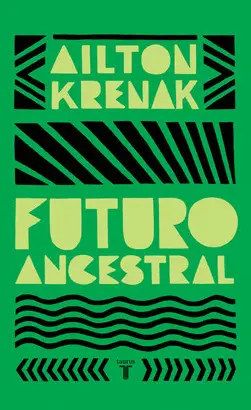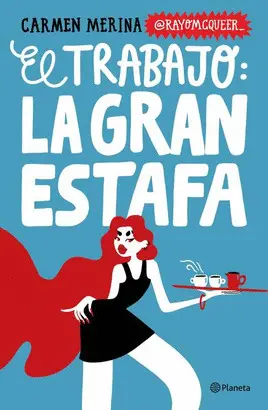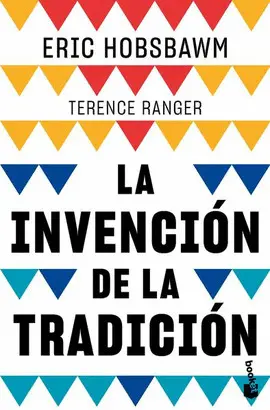- Editorial:
- JONES & BARTLETT
- Materia:
- Sociología
- ISBN:
- 978-0-7637-4108-2
UNDERSTANDING ORGANIZED CRIME
STEPHEN MALLORY
Understanding Organized Crime provides a comprehensive introduction to the subject of organized crime. Written by leading experts in the field, this book covers the complex and controversial issues associated with organized crime.
Topics covered include the various definitions of organized crime, why it continues to exist, how it has evolved throughout history, and different types of organized crime factions.
Using the authors unique approach to the topic, students will learn about organized crime through the eyes of the criminal investigator, and how law-enforcement practitioners today are counteracting these prevailing criminal organizations.
Introduction xi
Acknowledgements xiii
An Introduction to Organized Crime
1 (13)
Defining Organized Crime as Part of the Process of Investigation
1 (3)
A Working Definition for Organized Crime
2 (1)
Definitions of Organized Crime
3 (1)
Investigation Definitions
4 (1)
Organized Crime as Defined by Laws, Agencies, and Governments
5 (5)
International Perspective
6 (1)
United States Federal Definitions
6 (2)
A Synthesis of Definitions
8 (1)
Other Approaches to Defining Organized Crime
9 (1)
Conclusions
10 (4)
Evolution of Organized Crime and the Impact on Investigative Strategies and Law Enforcement
14 (18)
Introduction
14 (2)
Origins of Organized Crime in the United States
16 (4)
Colonial Piracy
16 (1)
Rise of Robber Barons and Crime Families
17 (1)
Immigrant Crime Groups and Political Machines
17 (3)
New Impetus for Expansion of Organized Crime in the United States
20 (2)
Anti-Crime Legislation and the Growth of Organized Criminal Groups
21 (1)
Development of Organized Crime in the South
22 (3)
Illegal Whiskey
23 (2)
Modern Development
25 (1)
Commissions and Task Forces
25 (1)
Corporate and Political Corruption: The Major Contribution to Organized Crime Growth and Power
26 (1)
Future Impact on Law Enforcement Efforts
27 (5)
Theories on the Continued Existence of Organized Crime
32 (17)
Introduction
32 (2)
Theories
34 (3)
Alien Conspiracy Theory
34 (1)
The Social Control Theory
35 (1)
Albanese's Theory of Typologies
35 (1)
Sutherland's Theory of Differential Association
36 (1)
Durkheim and Morton's Strain Theory and Anomie
36 (1)
Beccaria and Lombroso's Classical Theories
37 (1)
Biological Theories
37 (1)
Summary of the Theoretical Approach
37 (1)
Theories Related to Law Enforcement Efforts
38 (3)
Enterprise Theory
39 (1)
Hierarchical and Local-Ethnic Models
40 (1)
Deterrence Theory
40 (1)
Other Models
41 (1)
Beyond Theory
41 (1)
Combining Theory and Other Explanations
42 (3)
Conclusions
45 (4)
Colombian Drug Cartels
49 (14)
Introduction
49 (1)
Historical Perspective
49 (3)
The Medellin Cartel
52 (1)
Operations
52 (1)
The Cali Cartel
53 (3)
Operations
53 (3)
Decline of the Major Cartels
56 (1)
Current Activities
57 (3)
``Baby'' Cartels
58 (1)
FARC
58 (1)
Paramilitary Groups
58 (1)
Plan Colombia
59 (1)
Conclusions
60 (3)
Mexican Drug Trafficking Organizations (DTOs)
63 (10)
Introduction
63 (1)
Historical Perspective
63 (1)
Development and Expansion
64 (1)
Mexican Drug Violence and DTO Competition
65 (1)
The Four Major Cartels
66 (3)
Tijuana Cartel (Arellano Felix Organization)
66 (1)
Gulf Cartel
67 (1)
Sinaloa Cartel
67 (1)
Juarez Cartel
67 (1)
Subsidiary Groups
68 (1)
Current Activity
69 (1)
Drug Policies: Impact and Consequences
70 (1)
Conclusions
71 (2)
The Russian Mafia
73 (17)
Introduction
73 (1)
Historical Perspective
73 (3)
Structure and Organization
76 (2)
Activities and Methods of Operation
78 (7)
Theft, Kidnapping, and Murder
78 (1)
Cybercrime
79 (1)
Extending Their Reach
80 (5)
Investigative Strategies
85 (2)
Conclusions
87 (3)
The Italian-American Mafia
90 (24)
Introduction
90 (1)
Historical Perspective
91 (4)
Overview
91 (1)
Immigration Years: The Black Hand
92 (2)
Violation of Omerta
94 (1)
The FBI and the Mafia
94 (1)
New York
95 (4)
Arnold Rothstein
95 (1)
Charles ``Lucky'' Luciano
96 (1)
The Commission
96 (2)
The Five Families of New York
98 (1)
Chicago
99 (3)
Las Vegas and Sam Giancana
100 (2)
The American Mafia Today
102 (1)
Structure and Organization
103 (4)
Membership
105 (1)
Initiation
106 (1)
Activities and Methods of Operation
107 (2)
Provision of Illicit Services and Goods
107 (2)
Investigative Strategies
109 (3)
Exposure: Informants and Witnesses
109 (1)
Sting Operations
110 (1)
Government Oversight
111 (1)
Grand Juries and Legislation
111 (1)
Conclusions
112 (2)
The Yakuza
114 (18)
Introduction
114 (1)
Historical Perspective
115 (5)
Early Criminal Groups
115 (1)
The Industrial Age through Post-World War II
116 (1)
Yamaguchi-Gumi Crime Group
117 (1)
Yakuza Today
118 (2)
Structure and Organization
120 (3)
Membership
120 (1)
Code of Conduct and Oaths
120 (3)
Activities and Methods of Operation
123 (3)
Business Acquisition
123 (1)
Protection and Extortion
123 (1)
Gambling
123 (1)
Narcotics Trafficking
124 (1)
Pornography
124 (1)
Weapons and Smuggling
125 (1)
Money Laundering
125 (1)
Investigative Strategies
126 (2)
Laws and Statutes
126 (1)
Special Task Forces
127 (1)
Follow the Money
127 (1)
Conclusions
128 (4)
Triads and Tongs
132 (18)
Introduction
132 (1)
Historical Perspective
132 (5)
The Fighting Shaolin Monks
134 (1)
Chinese Rebellions Through the Revolution
135 (1)
Global Dispersal of the Triads
136 (1)
Structure
137 (4)
Membership
137 (3)
Tongs
140 (1)
Activities and Methods of Operations
141 (5)
Violence and Intimidation
144 (1)
Turf Wars
144 (1)
Business Investments
145 (1)
Investigative Strategies
146 (1)
Cultural and Language Barriers
146 (1)
Surveillance and Sting Operations
146 (1)
Conclusions
147 (3)
American Outlaw Motorcycle Gangs
150 (24)
Introduction
150 (1)
Historical Perspective
151 (3)
Post-World War II
151 (3)
1970 to Today
154 (1)
The Big Four
154 (6)
Hells Angels
155 (1)
Outlaws
156 (1)
Bandidos
156 (1)
Pagans
157 (3)
Other OMGs
160 (2)
Grim Reapers
161 (1)
Structure
162 (6)
Membership
162 (5)
Retirement By-Laws
167 (1)
Activities and Methods of Operation
168 (1)
Networks
168 (1)
Investigative Strategies
169 (3)
Intelligence
169 (1)
Laws and Statutes
170 (1)
Grand Juries
171 (1)
Conclusions
172 (2)
Hispanic and African-American Gangs
174 (14)
Introduction
174 (1)
Historical Perspective
175 (1)
Hispanic/Latino Gangs
175 (2)
Gang Communication: Language, Graffiti, Hand Signals, and Dress
176 (1)
Clicas
176 (1)
Gang Culture
177 (1)
Gang Structure
178 (1)
Members
178 (1)
Major Gangs
179 (3)
Bloods and Crips
179 (1)
Jeff Fort and the Black P. Stone Nation
180 (1)
Larry Hoover and the Gangster Disciples
181 (1)
Historical Black Figures of Organized Crime
182 (1)
Frank Lucas
182 (1)
Frank Matthews
183 (1)
Leroy Barnes
183 (1)
Charles Lucas
183 (1)
Other Black Criminal Organizations
183 (1)
Nigeria








